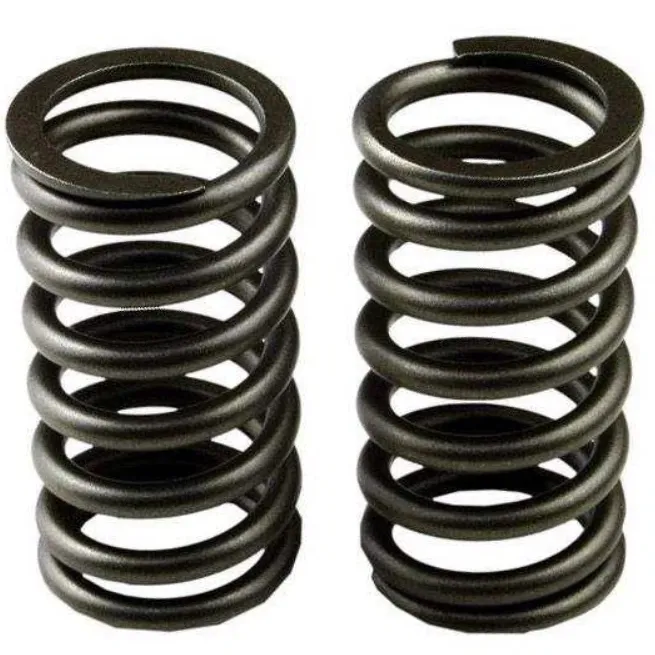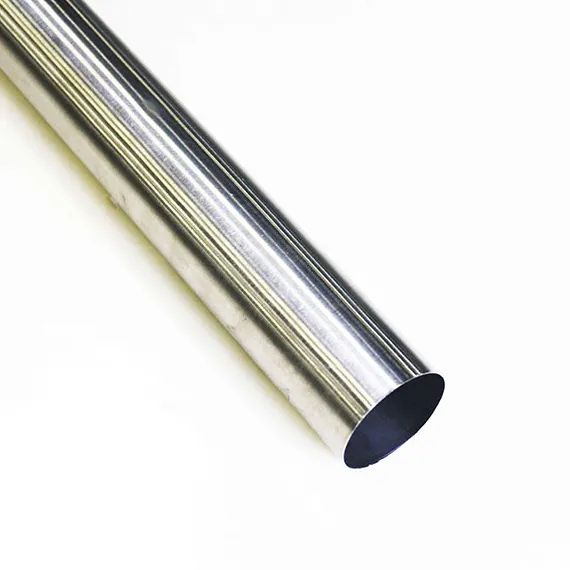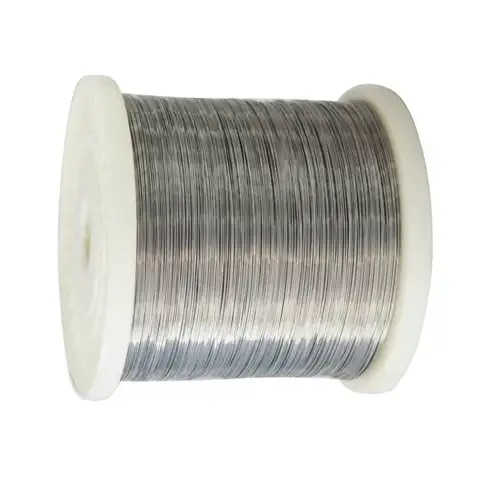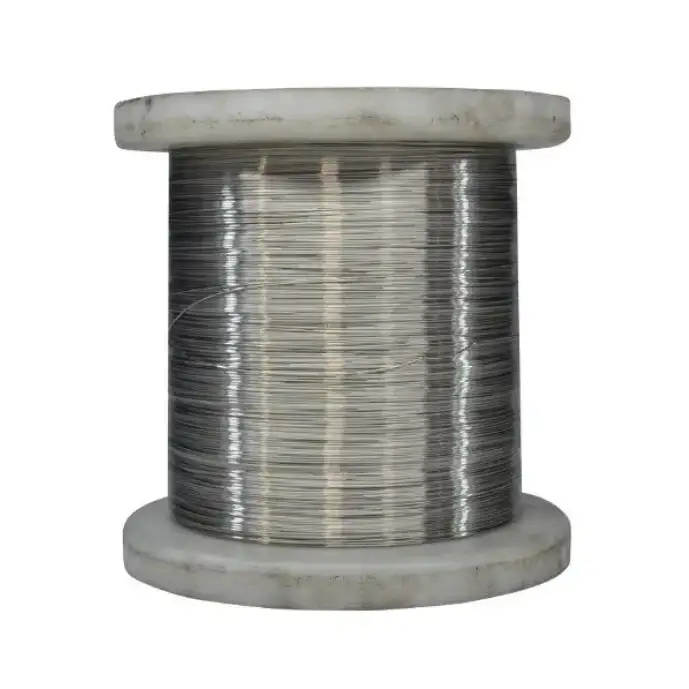AISI 5160 alloy steel round bar is a high-carbon, chromium-bearing spring steel prized for outstanding toughness, high fatigue resistance and good hardenability — making it the first choice for heavy-duty springs, leaf springs, some sword/knife blades and structural parts that must absorb shock.
What is AISI 5160 Alloy Steel Round Bar?
AISI 5160 is a chromium-containing, high-carbon alloy steel originally standardized by SAE/AISI and commonly supplied as round bar, flat bar, strip and spring wire. In round-bar form it is supplied hot-rolled, normalized or annealed and is primarily used where combination of toughness, fatigue resistance and the ability to take a high temper are required — for example automotive leaf springs, heavy coil and leaf springs, torsion bars, and certain edge tools and blades when resilience is more important than ultimate edge-holding.
Chemical composition
The following table shows the commonly referenced composition ranges for SAE / AISI 5160. Actual mill certificates (MTC) should always be consulted for exact lot chemistry.
| Element | Typical range (wt.%) |
|---|---|
| Carbon (C) | 0.56 – 0.64 |
| Chromium (Cr) | 0.70 – 0.90 |
| Manganese (Mn) | 0.75 – 1.00 |
| Silicon (Si) | 0.15 – 0.35 |
| Phosphorus (P) | ≤ 0.035 |
| Sulfur (S) | ≤ 0.040 |
| Iron (Fe) | Balance |
(Source: industry material datasheets and MatWeb/AZoM compilations.)
Mechanical & physical properties
Properties depend strongly on heat treatment (annealed, normalized, quenched & tempered). The table below shows representative ranges you will commonly see on technical data sheets for 5160 round bar (annealed and quenched & tempered references):
| Property | Annealed / normalized (typical) | Quenched & tempered (typical) |
|---|---|---|
| Density | 7.85 g/cm³ (7850 kg/m³) | 7.85 g/cm³ |
| Tensile strength (UTS) | ~500–700 MPa (depending on heat-treat) | 800–1200 MPa (after Q&T) |
| Yield strength (0.2% offset) | ~300–500 MPa | 600–1100 MPa |
| Elongation (A%) | 10–25% (annealed) | 8–18% (tempered) |
| Hardness (HRC) | ~20–30 HRC (annealed/normalized) | 45–62 HRC depending on austenitizing & tempering schedule |
| Modulus of elasticity (E) | ~210 GPa | ~210 GPa |
(Representative property sources: MatWeb and industry supplier datasheets.)

Standards, specifications and equivalents
Common designations and cross-references include:
-
SAE/AISI: 5160 (UNS G51600).
-
Typical international equivalents: JIS SUP9 / SUP9A (Japan), GB 60CrMnA (China), EN / DIN equivalents often listed as 60Cr3 / 61SiCr7 or similar spring-steel codes — but minor composition differences exist so direct substitution requires verification.
-
Related ASTM/ASME listings: 5160 is referenced across various ASTM product specs where alloy/grade references are allowed (consult the specific ASTM product spec such as ASTM A29/A29M or ASTM supplier documents).
Note: "Equivalent" across standards is a convenient shorthand but does not guarantee identical processing or mechanical results—always request a chemical certificate and mechanical test report when substituting materials.
Heat treatment & common processing practice
-
Typical hardening (example): Austenitize (≈ 800–850°C), oil quench, then temper in the 400–600°C range depending on target hardness/toughness balance. Proper control of quench severity and tempering temperature is essential to avoid cracking and to reach intended mechanical performance.
-
Normalizing / annealing: For machining or forming, 5160 is often supplied annealed or normalized; for spring or blade service it is oil-quenched and tempered.
-
Welding: 5160 is weldable with precautions; preheat and controlled interpass temperatures reduce risk of cracking; post-weld tempering may be necessary.
-
Machinability & forging: Machinability is fair for a high-carbon spring steel; hot forging and hot rolling are standard for bar production.
(For production work, follow specific heat-treat charts from the mill or an experienced metallurgist — the ranges above are starting points, not a certified procedure.)

Typical applications and technical reasons for selection
Why engineers choose 5160 round bar:
-
Fatigue resistance / resilience: The combination of ~0.6% C and Cr hardenability yields durable springs and components that absorb repeated flexing without catastrophic failure.
-
Toughness: Good fracture resistance compared to plain high-carbon steels; suitable for parts subject to impact.
-
Edge-capable for blades: Knifemakers and swordsmiths use 5160 when toughness is prioritized over extreme edge retention (it’s forgiving in edge damage situations).
-
Cost effectiveness: Compared with alloy steels with added Ni/Mo, 5160 gives many spring-steel advantages at lower material cost.
5160 steel vs 1095
Short technical summary:
-
1095 — very high carbon (~0.95% C), minimal alloying; excellent edge retention and easier to achieve very sharp edges, but more brittle and lower hardenability (requires careful heat treatment).
-
5160 — moderate high carbon (~0.56–0.64% C) + chromium; superior toughness and fatigue resistance; better for springs, swords, and tough utility knives; slightly lower edge retention versus 1095 but much less prone to chipping in demanding service.
Practical guidance: If your part must flex, resist impact and survive repeated cyclic loads pick 5160; if maximum edge retention for a fine cutting tool is the primary requirement and brittleness can be managed, 1095 is often chosen.

Sizes and weight (standard round-bar dimensions + how to calculate weight)
Common stock diameters
5160 round bar is commonly available in diameters from small sizes (3–6 mm) up to large bars (100+ mm), depending on mill. Typical stocked diameters for engineering use include: 6, 8, 10, 12, 16, 20, 25, 32, 40, 50, 63, 75, 100 mm.
Weight per meter formula (useful for quoting)
Weight (kg/m) = (π / 4) × (D in meters)² × density (kg/m³).
Using density = 7850 kg/m³ (typical for steel).
For convenience, here are calculated weights per metre (rounded to 4 significant digits):
| Diameter (mm) | Weight (kg/m) |
|---|---|
| 6 | 0.2220 |
| 8 | 0.3946 |
| 10 | 0.6165 |
| 12 | 0.8878 |
| 16 | 1.5783 |
| 20 | 2.4662 |
| 25 | 3.8534 |
| 32 | 6.3133 |
| 40 | 9.8646 |
| 50 | 15.4134 |
| 63 | 24.4704 |
| 75 | 34.6802 |
| 100 | 61.6538 |
(Computed from the formula above using 7,850 kg/m³ density; engineers should use actual mill-reported density when extreme accuracy is required.)
2025 price comparison — USA, Europe, China
Important caveats: steel prices fluctuate with scrap markets, tariffs, order quantity, finish (bright/peened/forged), cutting/processing, and shipping. The ranges below are market snapshots and supplier quotes observed in 2025; use them as ballpark indicators and always request live quotes with Incoterms and MTCs.
| Region | Typical 2025 price range (USD, per metric ton) | Typical purchase context / notes |
|---|---|---|
| China (bulk, mill/factory) | ~USD 430 – 1,000 / t (many listings show $500–$800/t typical for hot-rolled 5160 spring bars; very low quotes (~$430–$500/t) appear for large lot buys). | Lowest factory prices available when buying full truckloads or tens of tons; MOQ and payment terms apply. See Alibaba / Made-in-China supplier listings. |
| Europe (distributor / wholesale) | ~USD 600 – 1,100 / t (market indices for carbon steel long products in Europe and distributor premiums cause higher effective prices). | European buyers face local energy costs, regulatory overheads and occasional protective measures; price varies by finish and local stock availability. |
| USA (retail/small lots or domestic mill) | ~USD 650 – 1,200 / t (small orders and domestic supply chains often carry a premium; small retail bars sold by knife suppliers cost much more per kg/kg piece). | For small quantity purchases (single bars), expect per-piece pricing far above per-ton rates; tariffs and mill allocation influence prices. |
How to interpret these ranges:
-
If you buy by the ton from a Chinese mill you typically secure the lowest unit price but must allow for shipping and import duties. Look for suppliers with mill test certificates and consistent quality (e.g., suppliers on Alibaba, Made-in-China, or direct mill portals).
-
If you need small batches or precision bright bar finishes (for blades, forgings or precision shafts), expect higher per-unit prices in the USA/Europe. Retail knife-supply listings illustrate how small-order math changes price dramatically.
Buyer tip: Request quoted price per kg or per ton including: material condition (annealed / normalized), length/diameter cuts, tolerance class, heat treatment (if supplied Q&T), packing, and a copy of the material test certificate (MTC / EN 10204).
Purchasing checklist & quality control points
When buying 5160 round bar (especially for performance applications), insist on:
-
Mill Test Certificate (MTC / EN 10204) showing chemical composition and mechanical test results.
-
Hardness and tensile tests for sample lots when purchasing Q&T material.
-
Traceability: heat/lot number stamped/marked and matched to MTC.
-
Surface condition: for springs or fatigue parts, a bright drawn finish or shot-peened surface improves fatigue life; hot-rolled black bar may not be suitable without finishing.
-
Weldability & machining guidance if you plan downstream joining or machining: get supplier recommendations for preheat and tempering.
-
Supplier audits / references for large orders: ask for prior customers or visiting mills if possible.
Frequently asked questions (FAQs)
-
Q: Is 5160 magnetic?
A: Yes, 5160 is ferrous steel and is magnetic in all normal temper and microstructures. -
Q: Can 5160 be hardened to razor edge hardness?
A: It can reach high hardness (50–62 HRC with aggressive austenitizing and tempering), but for razor-edge retention other high-carbon, high-alloy steels may outperform. 5160 is optimized for toughness and flex. -
Q: Is 5160 good for knifemaking or swords?
A: Yes for swords and utility knives where toughness and flex matter (e.g., swords, large knives). For small folding knives where edge retention is critical, other steels may be preferred. -
Q: How does 5160 compare to 1095?
A: 5160 is tougher and more fatigue resistant; 1095 holds a finer edge but is more brittle. Choose by service needs. -
Q: Can I weld 5160 round bar?
A: Yes, but preheat, controlled cooling and post-weld tempering are recommended to avoid cracking. -
Q: What heats/treatment should I use for a spring?
A: Typical practice: austenitize ~800–850°C, oil quench, temper between 400–600°C depending on strength vs toughness trade-offs; consult a metallurgist for exact schedules. -
Q: Are there ASTM standards specific to 5160?
A: 5160 is referenced by SAE/AISI and appears within various product specifications; check the relevant ASTM or ASME product standard for the final application and allowed grades. -
Q: How long does shipping take from Chinese mills?
A: With factory stock, domestic Chinese lead times can be days to a few weeks; international shipping adds transit and customs (timing depends on Incoterms and logistics). -
Q: What is a typical certificate to ask for?
A: EN 10204 Type 3.1/2 MTC (or mill chemical and mechanical test certificates) matched to heat/lot number. -
Q: If I need exact geometry tolerances or specialty finish, can mills supply that?
A: Yes. bright drawn, peeled, turned & polished, and ground bars are available from specialty mills and service centers; expect price premiums.
MWAlloys — how we supply AISI 5160 round bar
MWAlloys is a specialist supplier and manufacturer of alloy and spring steels, including AISI 5160 round bar. We offer:
-
Factory pricing (100% factory ex-works prices for bulk orders),
-
Stocked sizes for fast shipment on standard diameters (6–100 mm),
-
Fast delivery for stocked items (local warehouse dispatch), and
-
Mill Test Certificates and traceability for every heat.
Final purchasing recommendations
-
For production-scale purchases (multiple tons): solicit quotes from Chinese mills (factory EXW or FOB) and compare delivered costs including duties and inland freight—this typically yields the best per-ton economics.
-
For prototype or small batch purchases: U.S./European distributors give speed and easier returns but at a higher per-kg price.
-
Always insist on MTCs, sample mechanical tests where safety or fatigue life matters, and a clear specification for heat treatment and finish.





